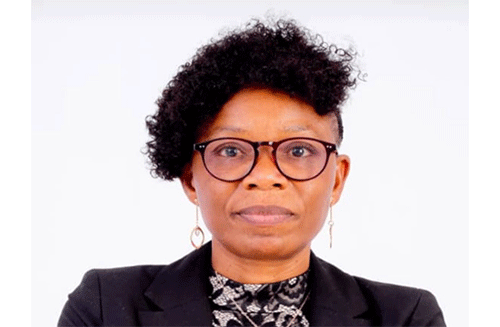Math teachers should adapt to students' learning needs - Hamukwaya

Source: New Era Live
ONGWEDIVA - Shemunyenge Hamukwaya believes that the limited research conducted in the areas of mathematics in Namibia created a need for her to investigate mathematics learning difficulties in detail.
This probe, she said, aimed to provide research-based knowledge for improving students' opportunities for the learning of mathematics, and to inform policies and practices primarily in the Namibian context.
"I believe there are normal variations in the way students learn mathematics, and it is expected that mathematics teachers should adapt their teaching practices to match the variability in the learning needs of individual students during the teaching and learning process," she stated.
Last month, Hamukwaya defended her doctoral dissertation in mathematics education, titled 'Beliefs about Mathematics Learning Difficulties (MLD): Opportunities for Learning - a Namibian study' at the University of Turku, Finland.
"My dissertation reflects my personal experiences in teaching mathematics in relation to MLD as an aspect of mathematics-related beliefs. During my teaching career, I recognised the important role and responsibilities of mathematics teachers in supporting students who experience MLD, since they have the potential to develop their students' mathematics learning and skills improvement," she explained.
The proud PhD holder was born and raised in a village called Okatseidhi in the Tsandi constituency. She attended her primary and secondary schooling in the Omusati region.
From 1997 to 1999, she was enrolled at the Ongwediva College of Education, currently known as the Hifikepunye Pohamba campus.
There, she completed her Basic Education Teacher's Diploma, specialising in Mathematics and Science (grades 8-10).
Hamukwaya decided to further her studies at Rhodes University, where she obtained qualifications in Advanced Certificate in Education, a bachelor's degree (honours) and a master's degree, specialising in Mathematics education, from 2004 until 2009.
In 2000, she started her teaching career, and she was promoted to head of department for Mathematics and Science at the Tsandi Junior Secondary School.
In 2008, she became a school principal at the Elias Amxab Combined School, a post she holds to date.
It became important for her to explore the impacts of beliefs about difficulties in learning mathematics in Namibian schools.
Her dissertation and its arguments are based on the literature about learning difficulties, learning opportunities, support for mathematics education, and a teacher's knowledge about students experiencing MLD and low achievements in mathematics.
"Based on my study findings, I tried to gain an understanding of beliefs about MLD in relation to systemic factors, as well as to teaching and learning. I did not only explore and document the participants' beliefs - but based on those beliefs, I tried to examine what was happening in the classrooms, teachers' education and in the education system," she explained.
Hamukwaya had the opportunity to practise her profession as a mathematics and science teacher for 22 years, and she has published 14 articles in peer-reviewed international journals.
Furthermore, she attended international and regional conferences on mathematics.
She also presented her scientific work at the 6th Africa Regional Congress on Mathematical Education (Rwanda), the 14th International Congress on Mathematical Education (China), the 43rd Conference of the International Group for the Psychology of Mathematics Education (South Africa), the 11th Congress of the European Society for Research in Mathematics Education (Netherlands), as well as at the Russian Conference of Technology and Psychology for Mathematics Education (Russia).
"A PhD is about making a contribution to the world or the research community, and it requires a lot of time, effort money and hard decisions. So, do whatever you can do, and just keep on doing it. If nothing works, try something different," she urged.
